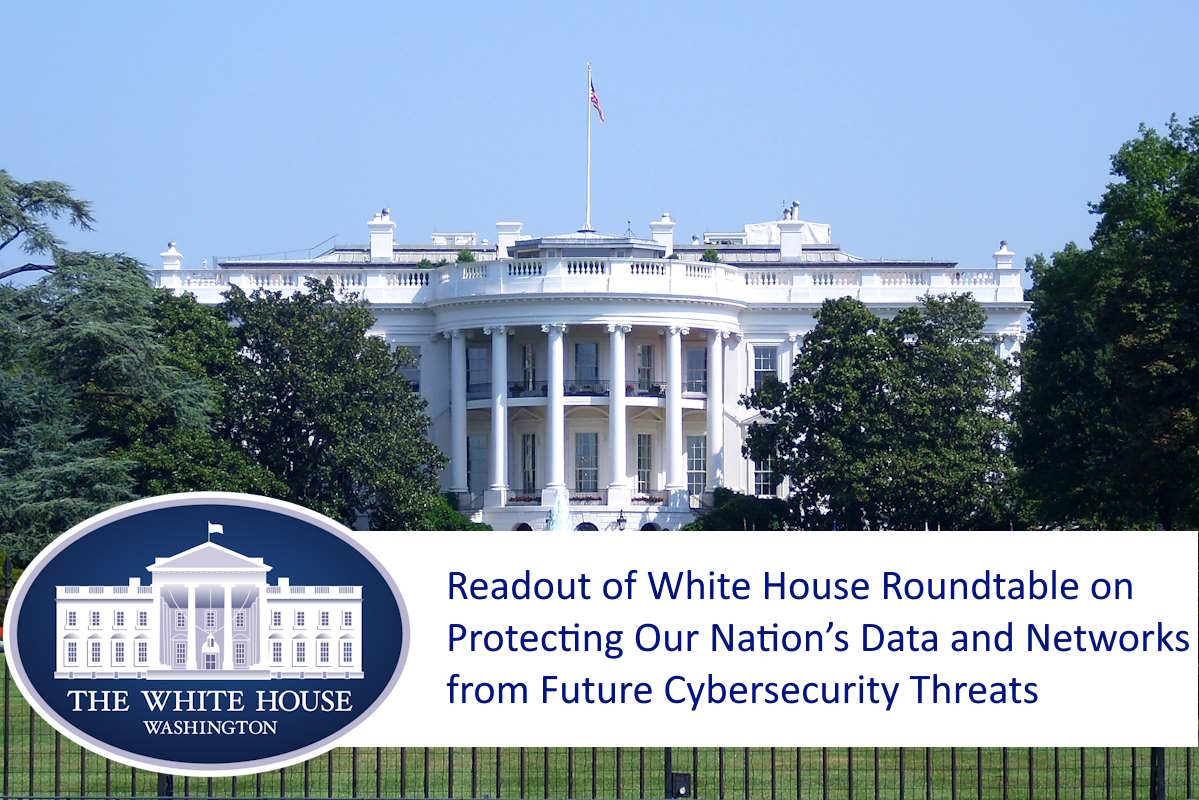White House roundtable on quantum computing and cybersecurity focuses on post-quantum cryptography migration

The U.S. White House had in January convened leaders from government, industry, and academia at a roundtable to discuss plans for addressing the requirements of National Security Memorandum 10 (NSM-10) on Promoting United States Leadership in Quantum Computing While Mitigating Risks to Vulnerable Cryptographic Systems and the Quantum Computing Cybersecurity Preparedness Act of 2022.
Gathered at the roundtable were the Office of Management and Budget (OMB) and the Office of Science and Technology Policy (OSTP) members. Participants echoed the importance and timeliness of the discussion and stressed the need for continued collaboration.
OMB, OSTP, and members of the interagency post-quantum cryptography (PQC) migration working group will continue to engage with experts both inside and outside government as agencies plan for PQC migration consistent with NSM-10 and the Quantum Computing Cybersecurity Preparedness Act of 2022.
Several senior officials at the roundtable delivered remarks emphasizing the importance of encryption technology to privacy and security in delivering critical government services, according to a White House readout issued on Monday. “In addition, they underscored the need for implementation of zero trust cybersecurity defenses on Federal and critical infrastructure networks.”
The readout details that, unlike conventional computers, quantum computers leverage the collective properties of quantum states to process information. Accordingly, quantum computers can perform some calculations much faster than regular computers. Quantum computers of sufficient size and scale may offer enormous benefits to society. Still, they may also incidentally have the ability to break many commonly used forms of modern encryption, therefore posing a cybersecurity risk to the nation’s digital infrastructure.
It added that while quantum computing technology brings opportunity, the U.S. must ensure it is ready to mitigate the risk that quantum computers present to protect the most sensitive information.
“Strong encryption is a foundational technology that underpins safety, privacy, trust, and competitiveness across the digital economy and our society,” according to Clare Martorana, federal chief information officer. “It unlocks innovation by securing it.”
“Quantum computers have the potential to drive innovation across the American economy,” said Gretchen Campbell, deputy director of the National Quantum Coordination Office. “While the full range of applications of quantum computers is still unknown, it is nevertheless clear that America’s continued technological and scientific leadership will depend, at least in part, on the Nation’s ability to maintain a competitive advantage in quantum computing and quantum information science.”
“NSM-10 underscores our commitment to ensuring that our Nation’s cyber defenses remain resilient in the coming era of quantum computing and highlighted the Biden-Harris Administration’s commitment to improving Federal Government and critical infrastructure cybersecurity,” pointed out Caitlin Clarke, special assistant to the President and National Security Council senior director for cybersecurity and emerging technology.
At the close of the roundtable, Chris DeRusha, federal chief information security officer and deputy National Cyber Director for Federal said that, “Continuing to promote strong encryption standards and methodologies is a key underpinning of our cyber defenses. And in many cases encryption is our first and last defense against advanced malicious cyber actors. Mitigating the risk of quantum capabilities will require a whole-of-government approach and we will continue to engage with stakeholders from industry and academia to inform migration efforts.”
The ongoing preparations for a post-quantum future to promote U.S. leadership in quantum information science and address potential threats that quantum computers may pose to encrypted data and systems, Also, U.S. budget proposals should ensure transparency in requirements under NSM-10, M-23-02, and NMM-2022-09, including services and software for accurately inventorying cryptographic systems and transitioning agencies’ critical networks to post-quantum cryptography.
In November 2022, the OMB described preparatory steps for the heads of executive departments and agencies to undertake as they begin their transition to post-quantum cryptography (PQC) by conducting a prioritized inventory of cryptographic systems. Further, the memorandum provides transitional guidance to agencies in the period before PQC standards are finalized by the National Institute of Standards and Technology (NIST), after which OMB will issue further guidance.










